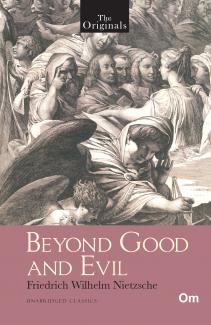THE ORIGINALS BEYOND GOOD AND EVIL (UNABRIDGED CLASSICS)
Availability :
In Stock
₹ 175.50
M.R.P.:₹ 195
You
Save: ₹19.50 (10.00% OFF)
(Inclusive
of all taxes)
Delivery:
₹ 40.00 Delivery charge
Author:
FRIEDRICH NIETZSCHE
Publisher:
OM BOOKS INTERNATIONAL
ISBN-13:
9789352767175
Publishing Year:
2019-04-16
No. of Pages:
237
Weight:
200 grm
Language:
English
Book Binding:
Paperback











